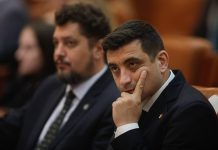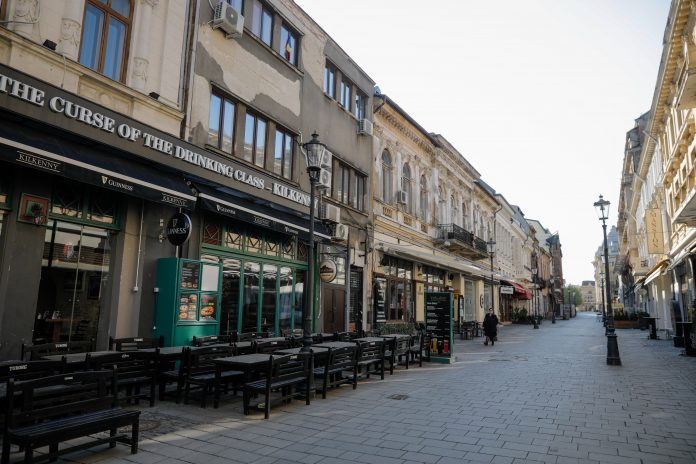Romania’s prime minister is eyeing September 1 as the date to reopen restaurants that were closed in mid-March as the coronavirus pandemic spread to Romania.
Premier Ludovic Orban said late Monday he had asked government specialists for an assessment on how to safely reopen restaurants, which have seen their business shrink or close during the health crisis.
He is due to meet with representatives from the hospitality sector this week to decide on the following steps.
Employees of the hard-hit industry have spoken out against the ongoing restrictions even as restaurants with outdoor seating were allowed to reopen in June, provided customers sat outside. Many restaurants have outdoor tables which fill up during the summer months.
Industry chiefs said income was down 70% compared to the first six months of 2019 and 40% of businesses had suspended their activity.
Last week, hundreds of hospitality sector workers staged an anti-government protest in the Old Town, a top tourist spot in Bucharest.
One poster read: “The way you are serving (the country), you don’t deserve tips!”
Orban said he was thinking ahead as the summer season comes to an end and schools reopen.
As the weather gets cooler, especially in the evenings, it will be harder for restaurants and hotels to attract clients to outdoor tables.
„We risk affecting hotels even more if we don’t provide them conditions to serve meals,” he said.
“Restaurants will probably reopen on September 1, in certain conditions,” Orban said.
Orban also said he was mulling reopening cinemas and theaters which have been closed since mid-March when Romania began a two-month state of emergency.
“I also think it’s important to resume cultural life, probably in theaters there will be a free chair between spectators, he said.
Last week, hospitality sector workers staged protests to demand the government lifts restrictions. They said they wanted to sound “alarm bells about the future of the 400,000 people who work in this industry.”
One ban likely to stay in place, though, is the presence of fans at football games, Orban said due to practical considerations.
Fans cram together at matches and shout and chant during games, which means they wouldn’t wear masks. The highly contagious virus is spread by singing and shouting.
However, Orban said there could be exceptions in areas where there weren’t cases of the novel coronavirus.
Schools go back on September 14 and students and teachers will be expected to wear face coverings.
He said 6.3% of all coronavirus cases were school-age children, although the vasty majority have no symptoms or a mild form of the virus.




















